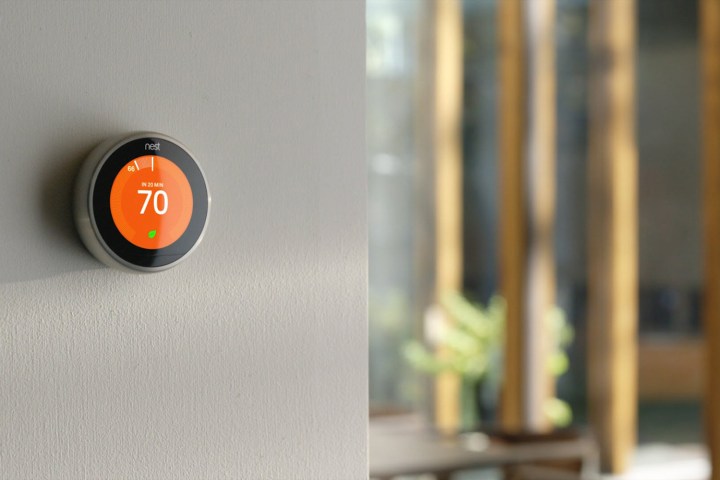
On Tuesday, the Alphabet-owned company announced that its signature Learning Thermostat had received an Energy Star from the Environmental Protection Agency (EPA). The recognition comes moments after the EPA dropped a few criteria previously needed to be awarded an Energy Star, allowing connected thermostats to be considered. That means that the Nest is actually the very first thermostat in the country to have such a distinction, with the company noting, “After rigorous testing, the EPA has confirmed what we’ve been saying all along: the Nest Thermostat saves energy.”
It’s quite an accomplishment, as seven years ago, the EPA de-recognized all programmable thermostats that previously had Energy Star status. This, Nest said in a blog post announcement, is because “You can only get an Energy Star if the EPA is confident your product is really energy efficient,” which apparently didn’t apply to thermostats in days of yore. But now that Nest has given the devices a healthy dose of technology, things have changed.
“You can’t force people to program their thermostats to save energy,” Nest noted, “But the whole equation changes if thermostats can learn to do it themselves.” The smart-home company cited studies suggesting that the Nest Thermostat has helped customers save between 10 and 12 percent on their heating bills, and up to 15 percent on their cooling bills, translating to an average savings of between $131 and $145 a year. Nest also claims that since 2011, its thermostats have helped save a total of around 10 billion kWh of energy.
“We know that our thermostat helps people save energy, and now the EPA Energy Star program wants everyone to know it, too,” Nest concluded. So if you’re looking for a way to save some money (and maybe the planet), this may be the time to check out a smart thermostat.
Updated 3/1/2017: Updated to reflect Nest says its thermostats have helped save 10 billion kWh of energy instead of 8 billion.


